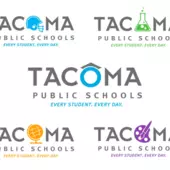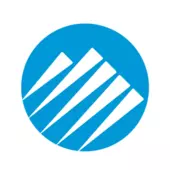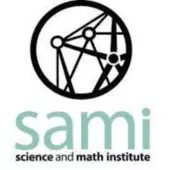Woodson (1990), Orr (1991), Wynter (1994), Pollock (2008), Khalifa, Gooden, & Davis (2016), Moore, Michael & Penick-Parks (2017) and the Race & Pedagogy Institute (2017) have highlighted the long standing, profound, and systemic miseducation within all educational systems, naming the many failures of education, historically and today, and calling for radical transformation of teaching and school environments. Hammond (2014) highlights the importance of shifting from a pedagogy of poverty to a pedagogy of rigor where teachers intentionally plan for awareness, learning partnerships, information processing, and community building. Pollock (2006) notes that educators must engage in race wrestling where they must navigate the two antiracist impulses to treat all people as human beings and as racial group members.
Yosso’s (2005) community cultural wealth model describes the aspirational, familial, social, linguistic, resistant and navigational capital that students, families and communities of color productively utilize to navigate racist and inequitable systems, such as schools. This framework supports educators to engage strength based narratives about students and communities.
Safir & Dugan (2021) focus on gathering street data, as opposed to an overreliance on grades, test scores, and attendance and graduation rates. They highlight the importance of listening to the narratives of students and families, promoting student agency, and utilizing an asset based model to amplify the strengths that students and communities bring to the educational process. This framework supports educators to focus on voices on the margin and to center student experiences and challenges districts to use the lived experiences of students, families, and teachers to meaningfully inform policies. The Transformation Cycle highlights four components of implementation beginning with gathering Street Data (narrative data through interviewing). The four components are 1. Listening with the Mindset of Radical Inclusion, 2. Uncovering with the Mindset of Curiosity 3. Reimagining with the Mindset of Creativity, and 4. Moving with the Mindset of Courage. The purpose of this cycle is to center marginalized voices and obtain personal narratives, transform systems to be more inclusive and conducive to learning by all stakeholders, and to promote agency among students and staff in the system.
In addition to these content objectives we were also informed by literature on professional development, particularly as it pertains to supporting teachers in reflective and equity-centered practice. Given the demographic status of the teaching workforce, with most teachers identifying as White (Ingersoll, Merrill, Stuckey, & Collins, 2018) while the student population becomes increasingly more racially diverse, we were committed to a model that engaged teachers in reflecting on their own positionalities and biases while developing tools for recognizing systemic injustices. For example, Gorski & Dalton’s (2020) research highlights a focus on liberal “personal identity” and “cultural competence reflection” (p. 363) and the lack of critical reflection within teacher education curriculum, in particular reflection that requires “students to examine how their positionalities and inequity complicities relate to power and oppression in the larger society” and prepares “educators to enact justice in and out of schools” (p. 366) and engage in “social transformation reflection” (p. 363). This typology of reflection approaches is one resource for shared interactions among pre-service and in-service teachers within a professional development context.
Picower (2015) juxtaposes traditional professional development (TPD) with critical professional development (CPD) arguing that professional learning that is focused solely on developing teachers technical or pedagogical skills without attending to the larger socio political context is unlikely to result in disruptions to systems of power. Critical Professional Development, on the other hand, supports participants by providing a context for analyzing the sociopolitical context in which schools are embedded and refining tools for dismantling those systems through collective voice and action. Other scholars working in this tradition have reached similar conclusions – to promote education as a liberatory project, teachers must be engaged in sustained and reflective professional development that makes visible the intersecting ways that power and privilege operate throughout systems (Duncan-Andrade, 2004; Kohli, Picower, Martinez, & Ortiz, 2014). Furthermore, critical professional development draws on professional development traditions that prioritize inquiry and collaboration (Cochran-Smith & Lytle,1999; Little, 2012; McLaughlin & Talbert 2001) as necessary components for teacher learning.
Citations
- Cochran-Smith, M., & Lytle, S. L. (1999). Chapter 8: Relationships of knowledge and practice: Teacher learning in communities. Review of research in education, 24(1), 249-305.
- Duncan‐Andrade*, J. M. (2004). Toward teacher development for the urban in urban teaching. Teaching Education, 15(4), 339-350
- Gorski, P. C., & Dalton, K. (2020). Striving for critical reflection in multicultural and social justice teacher education: Introducing a typology of reflection approaches. Journal of Teacher Education, 71 (3). 357-368.
- Ingersoll, R. M., Merrill, E., Stuckey, D., & Collins, G. (2018). Seven trends: The transformation of the teaching force–updated October 2018.
- Hammond, Z. (2014). Culturally responsive teaching and the brain: Promoting authentic engagement and rigor among culturally and linguistically diverse students. Thousand Oaks, CA: Corwin.
- Horn, I. S. (2010). Teaching replays, teaching rehearsals, and re-visions of practice: Learning from colleagues in a mathematics teacher community. Teachers College Record, 112(1), 225-259.
- Khalifa, M. A., Gooden, M. A., & Davis, J. E. (2016). Culturally responsive school leadership: A synthesis of the literature. Review of Educational Research, 86 (4), 1272-1311.
- Kohli, R., Picower, B., Martinez, A. N., & Ortiz, N. (2015). Critical professional development: Centering the social justice needs of teachers. The International Journal of Critical Pedagogy, 6(2).
- Little, J. W. (2012). Professional community and professional development in the learning-centered school. In Teacher learning that matters (pp. 42-64). Routledge.
- McLaughlin, M. W., & Talbert, J. E. (2001). Professional communities and the work of high school teaching. University of Chicago Press.
- Moore, E., Michael, A., & Penick-Parks, M.W. (2017). The guide for white women who teach black boys. Thousand Oaks, CA: Corwin.
- Orr, D. (1991). What is education for?: Six myths about the foundations of modern education, and six new principles to replace them. IN CONTEXT: A Quarterly of Humane Sustainable Culture. Retrieved from: https://www.eeob.iastate.edu/classes/EEOB-590A/marshcourse/V.5/V.5a%20What%20Is%20Education%20For.htm
- Picower, B. (2015). Nothing about us without us: Teacher-driven critical professional development. Radical Pedagogy, 12(1), 1-26.
- Pollock, M. (2008). Everyday antiracism: Getting real about race in school. New York: The New Press.
- Pollock, M. (2006). “Everyday Antiracism in Education.” American Anthropological Association. http://www.understandingrace.org/resources/pdf/rethinking/pollock.pdf
- Race & Pedagogy Institute. (2017). Call for proposals: Radically re-imagining the project of justice: Narratives of rupture, resilience, and liberation. https://www.pugetsound.edu/files/resources/call-for-proposals-2018-rpnc.pdf
- Safir, S. & Dugan, J. (2021). Street data: A next-generation model for equity, pedagogy, and school transformation. Thousand Oaks, CA: Corwin.
- White, T., Woodward, B., Graham, D., Milner, H. R., Howard, T. (2020). Education policy and Black Teachers: Perspectives on Race, Policy, and Teacher Diversity. Journal of Teacher Education, 71 (4), 449-463.
- Woodson, C. (1990). The mis-education of the Negro (1st Africa World Press ed.). Trenton, NJ: Africa World Press.
- Wynter, S. (1994). “No humans involved”: An open letter to my colleagues. In Forum N.H.I.: Knowledge on Trial, 1 (1). 42-71.
- Yosso, T. J. (2005). Whose culture has capital? A critical race theory discussion of community cultural wealth. Race Ethnicity and Education 8 (1), 69–91.



